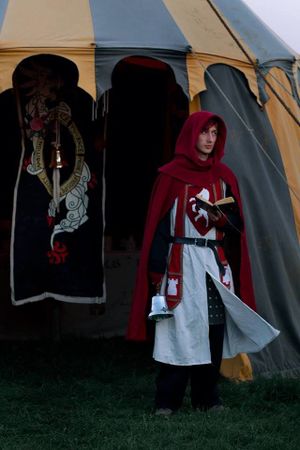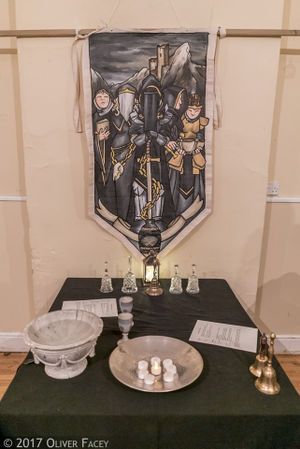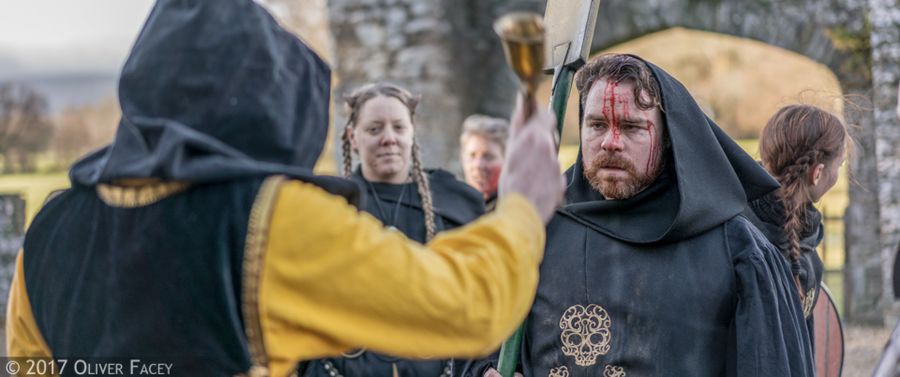Highguard hearth magic
| Line 2: | Line 2: | ||
{{CaptionedImage|file=Highborn Hearth Magic.jpg|caption=Bowls and bells, both for purity.|align=right|width=300}} | {{CaptionedImage|file=Highborn Hearth Magic.jpg|caption=Bowls and bells, both for purity.|align=right|width=300}} | ||
==Bells and Chimes== | ==Bells and Chimes== | ||
The Highborn hang wind-chimes in their doorways to bring back memories of those they have lost, and the echoes of wisdom from earlier days. Meditating to the sound of wind chimes is said to help to attune one to thoughts of one’s ancestors and prior incarnations, and allow the dead to “speak” to the living through their memories. The household use of bells endures for similar reason, in the belief that the wind carries the breath and words of the departed. It is commonly held that bells can speak for those who have no breath or voice. The sound of bells ringing encourages the Highborn to remember the words of dead people who are important or inspirational to them. | |||
More practically, bells and chimes exert influence over the unquiet dead. Restless spirits will not approach the sound of wind chimes, and the ringing of bells causes such creatures to flee in terror. As a consequence, most people who spend any time around the dead - especially the stewards of the dead and magisters - will keep a bell on their person at all times. | |||
==Cowls and Veils== | ==Cowls and Veils== | ||
Revision as of 14:38, 22 April 2020
Bells and Chimes
The Highborn hang wind-chimes in their doorways to bring back memories of those they have lost, and the echoes of wisdom from earlier days. Meditating to the sound of wind chimes is said to help to attune one to thoughts of one’s ancestors and prior incarnations, and allow the dead to “speak” to the living through their memories. The household use of bells endures for similar reason, in the belief that the wind carries the breath and words of the departed. It is commonly held that bells can speak for those who have no breath or voice. The sound of bells ringing encourages the Highborn to remember the words of dead people who are important or inspirational to them.
More practically, bells and chimes exert influence over the unquiet dead. Restless spirits will not approach the sound of wind chimes, and the ringing of bells causes such creatures to flee in terror. As a consequence, most people who spend any time around the dead - especially the stewards of the dead and magisters - will keep a bell on their person at all times.
Cowls and Veils
Properly prepared and worn head coverings conceal the identity of the wearer. Unlike the masks of the League, they do not present a false-face to the world; this is a hearth magic of obfuscation, not deception. The wearer maintains their sense of self, but they present a blank exterior to outsiders, an enigma. They step away from the world for a short time and become apart from it - a tradition that leads to many Highborn circles ceremonially donning cowls or veils when they must talk of matters of justice, or frankly discuss sensitive matters. The wearer of the cowl or veil metaphorically ceases to be themselves for the duration of such a discussion.
When the Highborn don veils or draw up their cowls as a group, it means they are about serious business. For some, it means they have stopped being individual humans and for a short time embody primal forces of virtue.
This concealment can grant supernatural protection; creatures of the realms often find it hard to identify whom they are speaking to when dealing with people who have ceremonially concealed their features with a cowl or veil.
Further Reading
Core Brief
Additional Information


